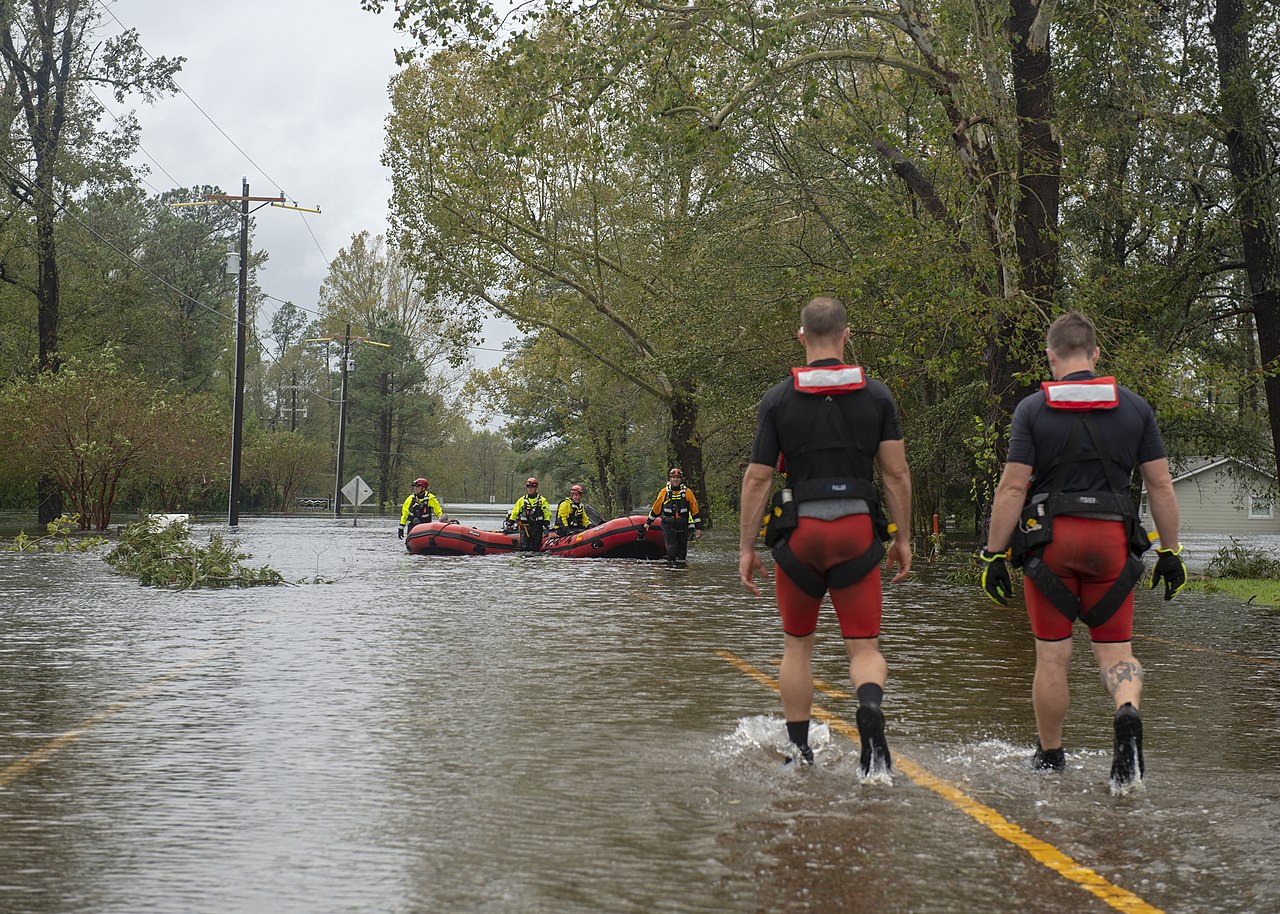 Public Domain | U.S. Department of Defense
Public Domain | U.S. Department of Defense
Event Recap: Climate Change as a Threat Multiplier
__
On September 22nd, the American Security Project (ASP) hosted a virtual seminar as part of Climate Week 2020, held in conjunction with the United Nations General Assembly meeting. ASP COO Andrew Holland moderated a discussion between ASP Consensus for American Security members Judge Alice Hill, who is also the Senior Fellow for Energy and the Environment at the Council on Foreign Relations, and Vice Admiral Lee Gunn, U.S. Navy (Ret.), on climate change as a threat multiplier.
VADM Gunn’s and Judge Hill’s opening remarks touched on how they became involved in climate security and the climate threats they believe to be the most acute. Both spoke to the shifting climates in highly vulnerable areas, such as South East Asia, where sea level rise threatens millions of people. They also noted that the Middle East is threatened by extreme drought and rising temperatures, forcing millions to migrate, searching for jobs, food, and water. Such a large migration has the potential to create instability, threatening U.S. national security interests. Domestically, VADM Gunn and Judge Hill noted that broader national security discussions and assessments must include climate change, and more attention must be given to climate adaptation and mitigation.
Next, VADM Gunn and Judge Hill discussed what they view as the greatest climate threats over the next five years. Even if carbon emissions were reduced to zero worldwide, Judge Hill underscored that the changes to our climate—worsening storms, extreme drought, wildfires, increasing temperatures, amongst others—will continue for some time. Concurrent crises, such as a hurricane or wildfire during a pandemic, stress existing emergency response systems, giving rise to the need to rethink our emergency management capabilities. VADM Gunn highlighted that much of the Department of Defense’s physical infrastructure is under threat from climate change. The Union of Concerned Scientists has identified over a dozen bases on the east coast threatened by sea-level rise requiring adjustments.
The discussion then shifted to the Arctic, a region of significant geopolitical interest to the U.S. The Arctic is warming two to three times faster than anywhere else globally; thus, there is less sea ice, and the ocean is opening, making shipping across the Arctic Ocean a possibility. To seize this opportunity, Russia is building up its military presence along the Arctic. China is also making moves; it was the first to send a tanker across the Arctic Ocean. Judge Hill noted that there are also a tremendous amount of natural resources—oil, gas, and minerals—available in the Arctic, ensuring there will be competition. Unfortunately, the U.S. has not been active in Arctic policy discussions and never ratified the Law of the Sea Treaty, limiting its credibility on Arctic issues. Furthermore, the U.S. has not sufficiently invested in Arctic infrastructure. That said, Judge Hill noted what infrastructure and assets we do have—military bases and icebreakers—need to be updated and maintained in the face of thawing permafrost and other climate-induced risks.
VADM Gunn and Judge Hill also discussed how climate change might force some Americans to move and the need to plan for this internal migration. The current approach to internal migration is highly decentralized, impacting local economies, vulnerable and financially disadvantaged populations, and creating licensing barriers for professionals, particularly nurses. They also spoke to the importance of international diplomacy and U.S. climate leadership, our domestic emergency response capabilities, and the need to consider restructuring government bureaucracies and conversations to reflect the integration of climate change into every policy consideration.
Finally, VADM Gunn’s and Judge Hill’s concluding remarks expressed how energizing and exciting it is to see how many people have a serious interest in this important issue. ASP put this issue on the map very early on and has continued to spotlight it. According to Judge Hill, climate change is an “all-hands on deck” issue that affects everyone. If we don’t start focusing on this issue, it will become disastrous, and today is as good a day as any to get started.
__
The American Security Project (ASP) has explored the intersection between climate change and national security for years. Recent publications on climate security examine climate resilience planning for military installations, arctic climate change, and national security, the increased use of air conditioning in historically colder areas, and the current climate conversations in the Senate Democrat’s Special Committee on the Climate Crisis.
To learn more about ASP’s climate security research, visit our page.





